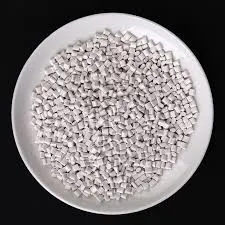Pentoxifylline Uses and Benefits
Pentoxifylline is a medication primarily used to improve blood flow in patients with certain circulatory disorders. This drug is a member of the xanthine family, and its mechanism of action involves decreasing blood viscosity and improving erythrocyte flexibility. This unique property makes pentoxifylline particularly beneficial in a variety of medical conditions.
The most common use of pentoxifylline is in the treatment of peripheral artery disease (PAD), a condition characterized by narrowed arteries leading to reduced blood flow to the limbs. Patients with PAD often experience pain or cramping in their legs when walking, a condition known as intermittent claudication. Pentoxifylline helps alleviate these symptoms by enhancing blood flow, allowing patients to walk longer distances without discomfort.
Pentoxifylline Uses and Benefits
Furthermore, pentoxifylline has shown promise in treating conditions associated with chronic venous insufficiency (CVI). Individuals with CVI may experience swelling, pain, and venous ulcers due to ineffective blood flow returning to the heart. The drug's ability to enhance blood flow and reduce platelet aggregation helps alleviate symptoms associated with CVI and promotes healing of venous ulcers.
pentoxifylline uses

Another noteworthy application of pentoxifylline is in the management of sickle cell disease. This hereditary condition leads to the formation of abnormal hemoglobin, resulting in distorted red blood cells that can block blood vessels and cause painful crises. Studies have suggested that pentoxifylline can help reduce the frequency of these painful episodes by improving red blood cell flexibility and promoting better blood flow.
Moreover, pentoxifylline has been investigated for its potential benefits in treating conditions related to inflammation and tissue damage. The drug has been studied in patients with liver cirrhosis, as it might improve liver function and blood flow in this population. Additionally, research has explored its role in treating various inflammatory diseases, including rheumatoid arthritis and ulcerative colitis, although more studies are needed to establish definitive benefits in these areas.
It's essential to note that while pentoxifylline is generally well-tolerated, it can cause side effects such as nausea, headaches, and gastrointestinal disturbances. Patients should discuss any existing health conditions and medications with their healthcare provider before starting treatment to ensure safety and efficacy.
In conclusion, pentoxifylline has a wide range of uses primarily focused on improving blood circulation in various medical conditions. Its benefits extend from alleviating symptoms of peripheral artery disease to aiding in the healing of diabetic foot ulcers and managing complications associated with sickle cell disease. As medical research continues to explore the full potential of this drug, pentoxifylline remains an important therapeutic option for individuals suffering from circulatory and inflammatory conditions. If you or a loved one is considering pentoxifylline for managing a health issue, consult with a healthcare provider to evaluate the suitability of this medication and to discuss potential benefits and risks.

